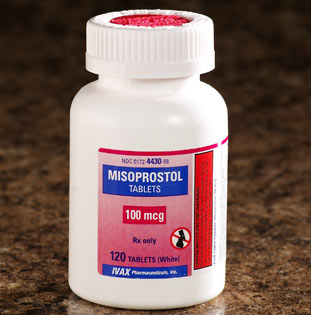Abortion opponents and their allies in elected office are seizing on an unusual strategy after suffering a wave of election defeats — using environmental laws to try to block the distribution of abortion pills.
The new approach comes as the pills mifepristone and misoprostol, which people can take at home during the first 10 weeks of pregnancy, have become the most common method of abortion in the U.S. and virtually the only option for millions of people in states with laws that have forced clinics to close since the fall of Roe v. Wade.
The first salvo started last week with a petition asking the Food and Drug Administration to require any doctor who prescribes the pills to be responsible for disposing of the fetal tissue — which anti-abortion advocates want to be bagged and treated as medical waste rather than flushed down the toilet and into the wastewater.
If the FDA ignores or rejects the petition, as is expected, the group Students for Life of America plans to sue.
The new push is the culmination of years of brainstorming around how to restrict access to the pills — particularly since their use surged following the outbreak of Covid-19 and the FDA’s ruling in 2021 that they are safe to take at home without a doctor present.
[…]
With Leonard Leo, the Federalist Society president who has been influential in putting more conservative judges on the bench, co-chairing its board and the conservative legal powerhouse Alliance Defending Freedom, whose attorneys helped draft and defend the Mississippi anti-abortion law that eventually toppled Roe v. Wade, advising them on the campaign, Students for Life is also pushing conservative state attorneys general to bring enforcement actions against doctors and abortion pill manufacturers, and is planning a tour of college campuses to advocate on the issue.
Should they prevail in any jurisdiction, the rules would be so burdensome that use of the drugs could be effectively cut off, several groups representing abortion providers told POLITICO. And even if they are unsuccessful in court, the effort aims to sway public opinion at a time voters have become increasingly accepting of abortions early in pregnancy.
“It’s hard for me to imagine even a Trump-friendly judge going for an argument about wastewater regulation, but you never know. Anytime you deal with abortion, judges get weird,” said Mary Ziegler, a law professor at the University of California, Davis and author of “Abortion and the Law in America.” “And we know that the more the anti-abortion movement can get people to think about fetal remains and other concrete details about what abortion entails, the more uncomfortable Americans become. So, it could be helpful for them even if it doesn’t go anywhere legally.”
The group’s FDA petition argues that the high number of people using pills to terminate pregnancies at home and flushing fetal remains down the toilet — which has increased in part due to the same group’s efforts to overturn Roe v. Wade and restrict access to surgical abortions — poses risks to the environment.
It claims without direct evidence that trace amounts of the drug in wastewater could threaten livestock and wildlife as well as humans, citing some studies in which the drug was given directly to animals rather than ingested from groundwater, and others where drugs flushed directly down the toilet contaminated the water supply.
“Pharmaceutical contamination of water is a serious issue that can have serious impacts on the environment, but trying to say that one drug out of thousands is having an outsized effect is based on ideology not evidence,” said Nathan Donley, the Environmental Health Science director for the Center for Biological Diversity, who has written citizen petitions to the FDA. “Of all the drugs and synthetic chemicals we shed that can potentially contaminate water, abortifacients are a fraction of a fraction of a percent. It’s nothing.”
Also referenced repeatedly in the petition are studies about the environmental impact of hormonal contraception, leading some experts to ask whether conservative groups will apply the strategy to other drugs in the future.
“It seems like they’re laying the groundwork for considering contraception itself as medical waste,” said Susan Wood, the former FDA assistant commissioner for Women’s Health and a professor of health policy at George Washington University.
The bad faith here is thick enough to blot out the sun, but shame has never been a limiting factor for this crowd. Use of abortion pills is already pretty restricted in Texas so I’m not sure if a bill to impose this kind of requirement is likely in the forthcoming legislative session, but it wouldn’t surprise me. There will be a bill for this in the Republican-controlled US House, which at least should make the campaign case for flipping that chamber back that much easier. This is the world that SCOTUS has forced us to live in. The bad guys are going to keep coming. We can’t let up.


+6 days and counting…….
Pingback: A non-prescription pill – Off the Kuff